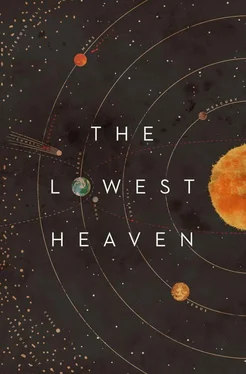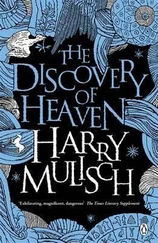I was the only slave of quality available that day, so I could not truly compare myself. My only flaw, according to the dealer, was with my eye lenses, which had trouble focusing on occasion, but I believed Magnus when he said I was of exceptional craftsmanship. The others with whom I shared the platform suffered from occasionally problematic hydraulics, which would make pouring wine difficult, let alone writing. They would clearly be sub-par slaves and as a consequence fetched a very cheap price.
Magnus was kind to me. He rewrote my systems so that my memories of the war were deleted, and installed file after file of old civilizations and long-forgotten tongues. I have retained my core model files◦– a basic familiarity with, and acceptance of, emotions, to enable us slaves to understand and tolerate the nuances of our human masters, who rarely follow logic.
Because of the fashion in which Magnus reworked my circuitry, I feel have always struggled to recall old events. Luckily the flaw seems confined only to moments in my own history rather than the ability to recall facts. Sometimes I cannot tell if this is a curse or a blessing. Magnus claims, however, that it can be best to forget the past, so I am content.
There were four other slaves in Magnus’ villa, but they were retired upon my arrival. There are human servants that work away in the gardens or tend to the horses, but I conduct all his more sophisticated business. Magnus likes to keep me close◦– he tells me he does not trust humans.
But enough about me.
Because this story is not about me at all. It is about Magnus Lucretius, a great man, though perhaps I am programmed to say that.
Magnus Lucretius was the finest mind of his generation. He was a planetcrafter, wealthy to the tune of seventeen trillion pounds. “Planetcrafter” is a deceptive name because he also terraformed planetoids and planetismals to make them environmentally similar to Earth.
The moral questions of engineering an alien landscape I will leave aside.
Magnus Lucretius, in his lifetime, re-housed three billion people◦– a fraction of those still on Earth admittedly◦– but his work relieved local population pressures to a great extent and saved many lives from the conflicts that beset our age. His company, Basilica Holdings, currently conducts development works on four planets and seventeen moons in three systems, two of which do not rely upon a dome.
Perhaps it was his appreciation of engineering that led Magnus, at an early age, to form a love of ancient Earth cultures. Or perhaps it was the other way around. I cannot know.
“It’s damn remarkable, Felix,” he once said, as we reclined in his blue gardens during my first sunset on Europa, “how three thousand years ago people could build structures on a scale that wouldn’t be seen again for millennia. They built aqueducts that stretched for thousands of miles, all to allow people to live in the deserts! If that ain’t terraforming, I don’t know what is. People who harp on about what I do need to learn a thing or two about the past. Now those were people who knew how to do things.”
Forgive his use of language, but Magnus was a passionate man and did not like those who questioned the art of planetcraft. And note how I, too, was allowed to recline alongside him◦– such brazen intimacy was rare for a slave and is some indication on how he would treat me as a friend and confidant rather than as someone he owned.
Perhaps because I know little of my own past, I felt an urge to encourage him to talk of his history and his dreams. I believe he liked such conversations, that they took his mind off the stresses of daily business.
“Felix,” he said that same sunset, “I’ve read them all. Studied everything from Romulus to Justinian. Digested the works of Al-Kindi and of those who passed through the Platonic Academy. Herodotus and Livy. The lot. Y’know what?”
“No, dominus.”
“Knowledge hasn’t moved on. Sure we’ve refined things, but we’re all pretty much stuck in the past.”
During the galactice-wide depresion, a good few years before he purchased me, he bought Europa at a knockdown price. It was there that he was able to combine both of his loves, planetcraft and of the ancient world.
“It’s a worthless rock,” he said. “I told my accountants that and they couldn’t do a thing to stop me buying it. So I did. And I’m having my fun with it.”
And I was lucky enough to witness the latter stages of his “fun”. Though the moon had been promptly domed, the skin was created so finely that one could not perceive being inside a bubble.
His project◦– his driving passion◦– was to transform this modern moon into an ancient Earth world. He recreated ancient battles with cheap droids and spectacular visual effects. The cities of the past were born again with precisely the same layouts and architecture. Laws were adjusted to reflect the Law of the Twelve Tables, echoing the ancient Roman Republic. There were brothels and baths, games and Gauls, anything one could wish for.
Starships began to stop by Europa on their way elsewhere. Passengers, jaded from interstellar travel and homesickness, were delighted to find on Europa something to stimulate both the intellect and libido. It was a moon where men and women could unwind. They could spend a carefree cycle watching epic battles, visiting the brothels or simply sitting in marvellous ornamental gardens amid the statues and the fountains. Because Magnus was not looking to turn a profit, and because he had no need of the weatlh, there was no modern, corporate advertising to ruin the effect, as could be found on other moons.
Magnus did rename Europa, however. He called the rock Orbis Romanus.
In the later stages of the project, he reined in the excesses of wealthy travellers and burnt-out workers, and began to transform his project into a more family-friendly tourist destination. Scholars◦– those who had not been invited initially to help with the recreations◦– visited from Earth, bringing with them their students and their partners (who were sometimes both) for a weekend away. Magnus entertained those scholars and gleaned information from them. They became his advisors; they helped him fine-tune Orbis Romanus.
Since the galaxy’s economy had recovered, what was once a worthless rock happened now to be a habitable, fully terraformed moon situated on burgeoning trade routes. It was one of the most valuable properties in the solar system.
Despite his ability to shape worlds, I believe Magnus Lucretious found himself dissatisfied on Orbis Romanus. He was Mark Antony without his Cleopatra.
Moreover, it came quite apparent that there was a new direction to his historical recreations.
Magnus orchestrated certain battles, ones from between the second and third century AD. The Roman-Parthian War, the Dacian Wars. Poetry was read out, and plays performed on stage, all of which had originally been written in that same era. And if the text could not be found, it was written by his pet academics to mimic the style of the era.
Citizens and tourists alike were encouraged to wear the dress style of that particular time. Buildings were reworked in that same fashion. The whole of Orbis Romanus’ most developed sector became a vast city plucked straight out of that same era. Even the walls of our mansion were covered in fourth style Roman frescos◦– bright and bold colours detailing classical scenes, all of which were set within frames painted to look like columns.
I came to my own conclusions about his actions, and finally determined to ask him. As Magnus was sprawling in bed one evening, I served him his food, and put my thoughts to him.
He turned to look at me from his pillow and it was only then I noticed yet another woman in the bed next to him, almost hidden beneath the sheets.
Читать дальше












